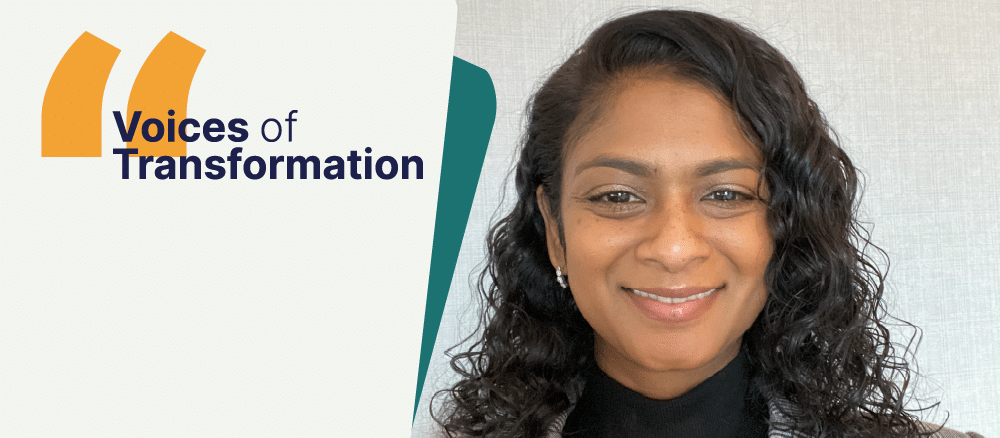ATD’s Strengthening Advising Seminar Series offers in-Network institutions a unique opportunity for their advising professionals and college teams to receive expert support from experienced holistic supports professionals in exploring effective strategies, communication skills, and customized activities to elevate advising practices. The multi-session interactive learning experience, running from October 2024 to April 2025, will share evidence-based, equity-minded methods for successfully guiding students along their college journey. It includes both interactive virtual cohort sessions and individual virtual college-based implementation sessions with a dedicated ATD holistic student supports expert. The series culminates with each participating college creating a tailored action plan designed to be immediately implemented on campus. The deadline to apply to participate in the series is Friday, July 26.
We checked in with Dr. Paula Pitcher, ATD’s director of holistic student supports, to find out more about the seminar series, to learn how support around advising practices is advantageous to colleges, and to hear about some of the successes that previous participants in the seminar have experienced in implementing evidence-based approaches to student advising.
Q: Could you briefly describe the Strengthening Advising Seminar Series and explain how it benefits participating colleges?
This is a multi-part learning series designed to help advising professionals and college teams develop essential techniques to support their students’ success in college and career readiness. Each session is curated and facilitated by an expert holistic students support facilitator.
Throughout the series, we introduce several practice-informed strategies through a holistic lens to support students’ college journey. Key themes include serving students holistically; examining college structures, processes, and attitudes; implementing, assessing, and evaluating best practices; and integrating career advising.
Q: In what ways might traditional advising systems not meet the needs of today’s students?
Traditional advising systems in community colleges can be significantly improved to better meet the diverse needs of today’s students. By enhancing accessibility, providing personalized support, and integrating modern technology, advising can become more effective. Personalized guidance and continuous support tailored to individual goals are essential. Incorporating career planning and addressing the unique needs of non-traditional students, such as adult learners and those from diverse backgrounds, can make advising more comprehensive. Emphasizing holistic support, cultural sensitivity, and overcoming language barriers can ensure that all students receive the guidance they need to succeed.
Q: What are some of the topics that the seminar series covers that will help colleges overcome common barriers that hamper the efficacy of student advising?
The seminar series focuses a great deal on holistic student support, offering strategies to integrate academic, career, and personal advising. It also addresses equity and inclusion by providing training on cultural competency and addressing diverse student needs. We cover technology integration, meaning how to effectively use digital tools and platforms to enhance advising, and we delve into advising design, which centers around innovative models and practices to improve advising structures. The series also encompasses data-informed decision-making — that is, using data to tailor advising services and to track student progress. Professional development is another area of focus; we emphasize the importance of continuous training and development for advisors. And last but not least, collaborative practice, which addresses the benefits of enhancing communication and cooperation among different college departments.
Q: Could you elaborate on the role of equity and inclusion in an advising strategy?
Incorporating equity and inclusion in advising ensures all students receive personalized support tailored to their unique needs, goals, and challenges. This involves training advisors in cultural competency, providing holistic services, and removing institutional barriers. By using data-driven decision-making, equity audits, and targeted interventions, advising can address specific inequities. Implementing flexible policies and creating feedback mechanisms further promote inclusivity, and building strong relationships and engaging with community resources foster a sense of belonging as well. These strategies collectively ensure that advising supports the success of all students, especially those from marginalized or underrepresented backgrounds.
Q: You mentioned data-informed decision-making a couple of times. Could you explain a bit more about the role of data in improving student advising practices?
Data improves student advising by identifying trends, personalizing support, and enabling early interventions. It helps measure the effectiveness of advising programs and allocate resources efficiently. Data also enhances communication by providing clear reporting and feedback loops and promotes equity by uncovering disparities in student outcomes and tracking progress on equity-focused initiatives. By leveraging data, advisors can offer more informed, effective, and personalized support, leading to better student outcomes and a more responsive educational environment.
Q: This is the third year that ATD has offered this seminar series. What have been the overarching goals of some of the previous cohort members’ action plans, and what kind of success have they had in implementing change?
Over the last three years, colleges have focused on different ways to approach improvements in their advising models. For example, we have had colleges focus on how they can leverage technology to create efficiencies in their advising model, especially as it relates to case management and communication between key stakeholders in the student’s support network.
Some colleges have worked on role clarity and communication for all stakeholders who advise students both in and out of the classroom. Colleges have emphasized defining the faculty role in their advising model and how that role intersects with key student affairs staff who connect students to supports. Along with role clarity, colleges have worked to build and implement communication plans for improved outreach to students connecting them to holistic student supports.
Finally, several colleges have used the professional learning series to create resources that can be used by advisors, faculty, and student affairs staff as part of their advising processes. Resource development has included the creation of, or updating of, advising handbooks that are used by faculty and staff when assisting students, the design of new plans of study with improved guidance for students who may self-advise, as well as professional learning activities that help keep faculty and staff current on changes or additions to the advising model.
ATD’s Strengthening Advising Seminar Series offers interactive virtual seminars designed for advising professionals and college teams at ATD Network colleges who seek to enhance their support for student success in college and career readiness.
Learn More and Apply


